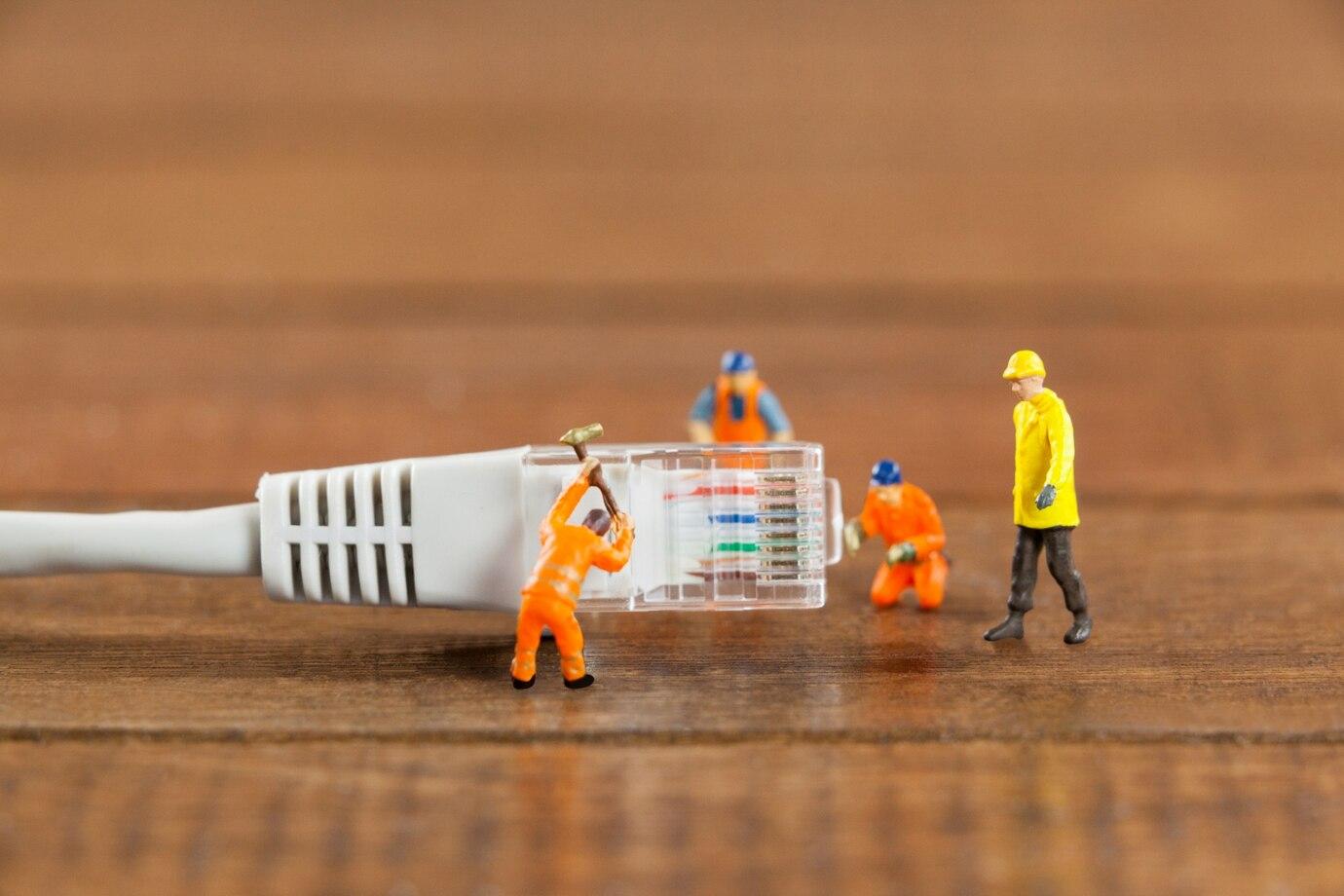The internet has become an integral part of our daily lives. It is used for work, education, communication, and entertainment. However, with the growing popularity of internet services, there has been an increase in fraudulent schemes related to fake internet providers.
Internet Provider Fraud: Common Schemes
There are many fraud schemes that use the name of internet providers. These schemes can include both blatant scams and more intricate mechanisms to mislead users.
One common way is to offer fake internet connection applications under the guise of legitimate providers. Scammers use similar names, logos, and even websites to create the appearance of a real provider company. Most often, they promise extremely low rates that are significantly below the market. In such cases, trusting users sign up for services, only to be left disappointed and disconnected.
Another common scheme is the use of "fake invoices," where fraudsters send bills for non-existent services. They use stories of alleged debts to scare users and force them to pay. Sometimes this is done through fake websites or fraudulent email campaigns. In such situations, it is important to remember that legitimate providers will never request personal information through impersonal letters.

Provider Rate Scams: How to Avoid Being Lured by Scammers
Comparing provider rates is a useful tool for choosing the best offer. However, scams also lurk along this path. Some fake companies may use advertising for their services, promising incredible discounts and promotions. But, as a rule, marketing tricks hide many pitfalls that can lead to significant expenses and disappointment.
For example, "unlimited" rates may be offered, which in reality have many restrictions, such as speed or traffic volume. A user may only discover after signing the contract that the promised conditions do not match reality. Always read the contract terms carefully before signing and make sure to examine all the details of the internet services being offered.
It is also important to pay attention to reviews about the provider. Often, fraudulent companies have unlicensed or fake reviews posted on websites. Research user opinions on independent resources and forums to ensure the provider's reliability.

Fake Internet Bills: How to Recognize Them
Receiving a bill for internet services can cause panic, especially if you did not intend to connect services with a new provider. Scammers often use this tactic to scare users. Their schemes are based on various manipulations, creating fake documents using real customer information.
To avoid such situations, always check bills for accurate information about your services. Genuine internet providers always specify your contract number, connection details, and account information. If you receive a bill and are unsure of its authenticity, contact the official provider's customer support to address the issue.
Additionally, pay special attention to payment methods. Never transfer money to personal accounts; always use only your provider's official platforms for service payments.
Fake Internet Services: How to Protect Yourself from Scams
One of the most common methods of fraud in internet services is the offer of fake services, such as VPS hosting or domain names. Often, such companies provide services that they cannot actually deliver, or they offer them at a low level.
To protect yourself from such scammers, monitor the condition of your equipment and services. For example, if you encounter constant connection disruptions or lack of internet access, this may be a sign of fraud.
Additionally, check whether your potential provider has licenses and certificates. Legitimate companies always have the appropriate documentation confirming their legality in the market.

How to Check a Provider Before Connecting
Checking a provider is an important step that can save you from many problems in the future. The first thing you can do is study reviews about the company. Websites like Trustpilot, forums, and social networks can provide insights into real user experiences.
It is also recommended to check the official websites of internet providers and clarify their licenses. Legitimate companies should always provide information about their registration and licensing. You can contact government agencies responsible for communication regulation and request information about your chosen provider.
Pay attention to the transparency of service terms. Companies that hide details of tariffs and services are more likely to be scammers. Check for reviews about customer support, as a real provider is always ready to help its clients.
Another important step is to check offers from existing service operators. They can show various rates and compare them, helping you choose a truly beneficial option.

Scammers Among Providers: How to Recognize the Danger Signs
Despite the fact that there are many reliable providers in the internet market, scammers can also pose as honest companies. Scammers among providers can be recognized by several signs.
The first sign is overly attractive conditions. If an offer looks too good to be true, it probably is. Scammers often use this trick to attract more users.
The second sign is the lack of information about the company. If a provider does not have clear information about its legal address, contact details, or service licenses, this is a reason to be cautious.
The third sign is negative reviews. Studying reviews about the company will help you assess the quality of the services offered. If you notice many complaints from clients about lack of connection or service issues, consider choosing a different provider.
Fraud with fake internet providers can become a serious problem for users. The perpetrators of this type of scam use various tricks to deceive trusting clients by providing fake offers and bills. To protect yourself from such situations, it is important to remain vigilant and verify information about your providers.
